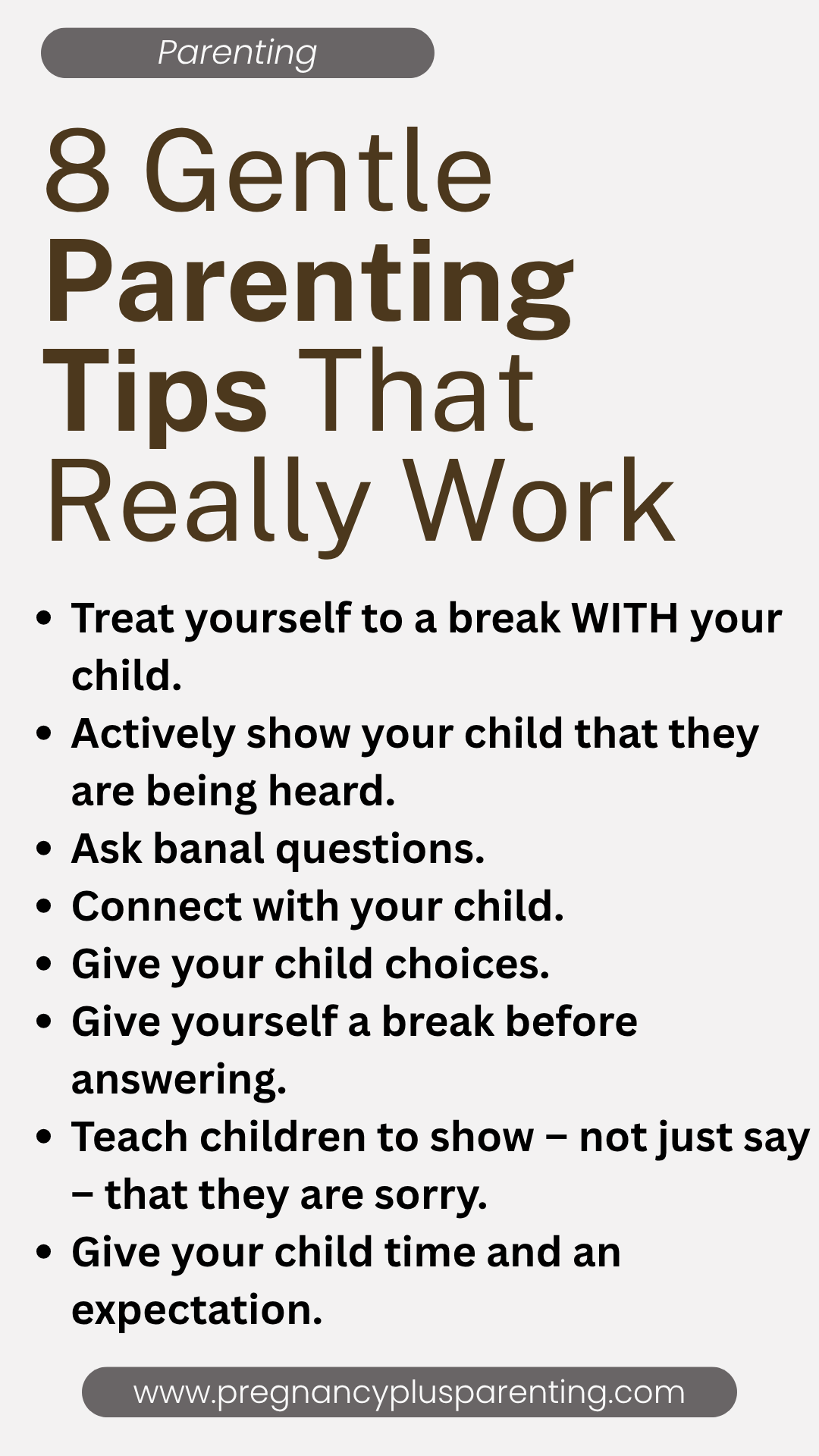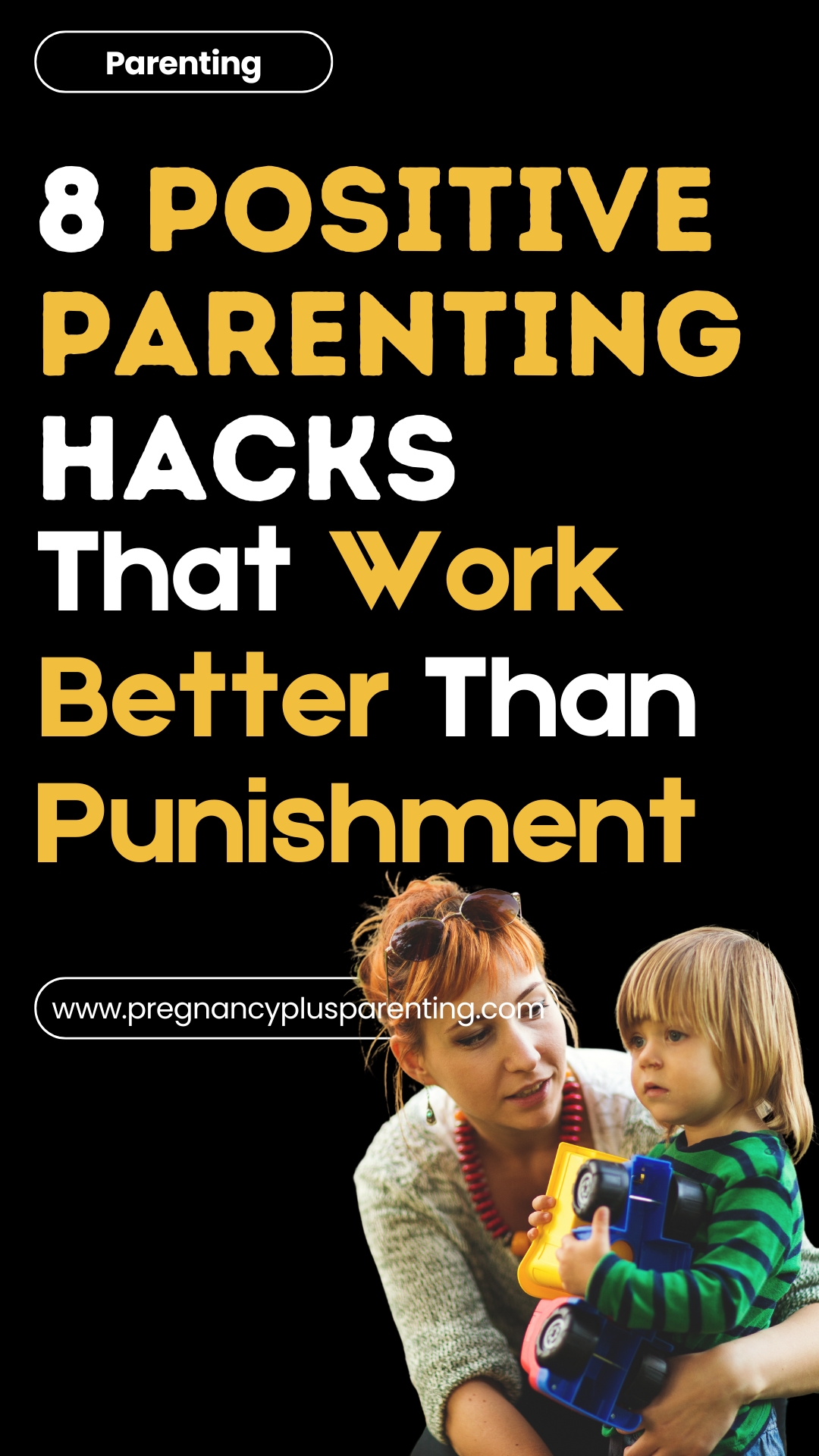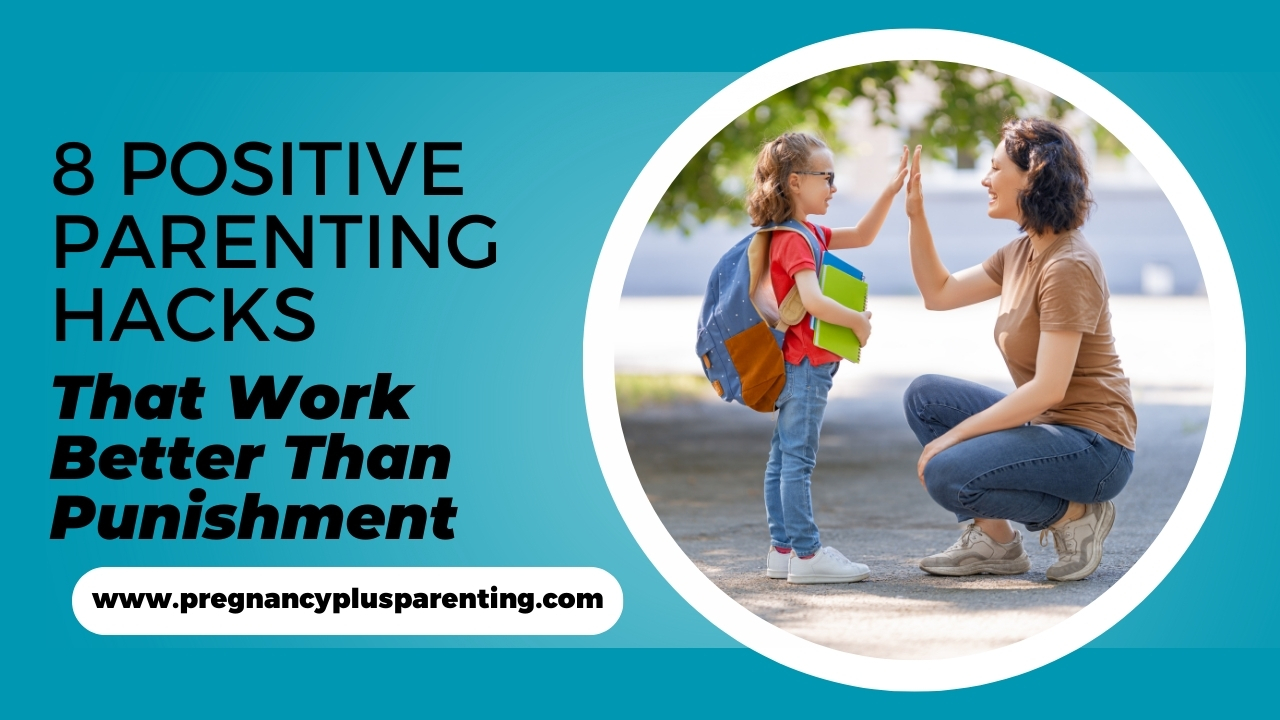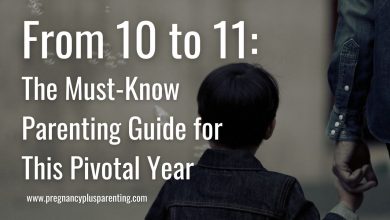8 Positive Parenting Hacks That Work Better Than Punishment
Punishment may not always be the best option for you and your child when it comes to discipline. Here are eight positive alternatives to punishment that are just as effective.
Although the words punishment and discipline have traditionally been used hand in hand, parents today realize that there are other ways to help children learn from mistakes and behave appropriately in the future .
It is important to remember that most childhood behaviors that might encourage a disciplinary response are based on something other than a child’s desire to actually do something wrong.
Behavioral changes in response to developmental stages, feelings about events unrelated to what’s happening now, and feelings of illness or fatigue. Before we discuss the different behaviors of children, there are important things to consider.
The easiest way is to put yourself in the child’s shoes. When we make a mistake, do we find it helpful when people embarrass us, shame us, or yell at us in response?
Of course not. When we experience strong emotions , what are we really looking for? Probably some time and space to cool off and think things through, as well as some empathy and connection.
All of this also applies to children , which is why the following eight suggestions offer helpful and positive alternatives to punishment.
Treat yourself to a break WITH your child
“Timeout was originally developed to help children process their emotions in a physically safe space.
Nowadays, it is generally used as a tool to embarrass, manipulate, and control children, with the misguided understanding that this will help them become better people.
Children in time-out will think about many things—how to get revenge, how to avoid getting caught, how to make adults happy—but they won’t think about what they’ve done.”
By removing yourself and your child from the triggering situation or place and entering a new space together, you can help the emotions calm down and reconnect.
Actively show your child that they are being heard
Children often act out when they feel they don’t have the words or a situation that allows them to easily express their feelings.
We all know the feeling of being speechless or looking back on a situation and wishing we’d said what we really wanted to say. The same thing happens to children.
It may be easy to offer a solution to a problem or challenge your child is facing, but that’s not always what your child is looking for. Sometimes they just need the change to express themselves and be heard.
When your child shares how they feel, reflect that feeling back to acknowledge it, and nothing more.
If your dog says he is angry because a playmate took his toy without asking, simply tell him that you heard he is angry and that a playmate took his toy without asking.
It may seem repetitive to you, but to a child it is a clear statement that you have really listened.

Ask banal questions
This is interesting because it seems to have nothing to do with it, but it all depends on how the brain works.
When the amygdala, or the part of our brain that feels alarmed, is activated, our body reacts more intensely and with greater intensity.
This type of reaction from your child is the furthest thing from the calmness they need to deal with a situation in a healthy way.
Asking your child simple questions about topics unrelated to the triggering episode will force a different part of their brain to engage instead of feeding the amygdala response.
The questions can be as simple as asking about a favorite book or movie, or about the weather. Quietly engaging a different part of the brain will allow for a calmer environment and space.
Connect with your child
An outburst can be a cry for attention, even if your child denies it.
Sometimes a hug or an attempt to connect with your child is all that’s really needed. Showing empathy can be especially effective in these situations.
You can use an example from your own childhood or your current life, but in any case, your child will feel comfortable knowing that they are not alone in their feelings.
Give your child choices
Children can make poor decisions when they feel stuck in a situation with no options, just as any of us would feel.
Sometimes they just need an opportunity to use their voice and have some freedom of choice. This isn’t a suggestion to reward negative behavior, but rather a way to offer options as a solution.
You can say something like, “Emma, I see you’re angry right now. Would you rather have some quiet time with me in the kitchen, or would you rather we work together to clean up the blocks?”
Just the possibility of choosing an action and having a choice can comfort children in many situations.
Give yourself a break before answering
Sometimes our children’s behavior triggers feelings and reactions in us that have absolutely nothing to do with our children.
We are parents, which means we have a lifetime of triggers and a schedule that causes fatigue.
By taking a minute to check in with ourselves, take a deep breath, or even quickly go to the bathroom if we need some space before responding calmly, we can prevent ourselves from choosing a response we’re likely to regret later.
Teach children to show – not just say – that they are sorry
Once you’ve used any of the strategies above to create a calmer space, it’s important for children to learn that they can make a difference and actually fix situations in some way.
Whether it’s cleaning up thrown blocks, asking a friend for a hug, or drawing a picture for someone to put a smile back on their face, we can help children understand that they have the power to take a negative situation and make it positive again.
Give your child time and an expectation
Just as we may need a minute or two to adjust to a situation or comply with a request, we can expect the same from children.
If a child refuses to do something, you can offer a little time along with your request. You could try saying something like, “James, let me know when you’re ready to share your toy.”
This gives him the opportunity to feel that he did this because of his own decision and not because of yours.
No matter what strategies you use, you can often quickly check in with yourself by asking yourself how you would feel in that situation. Taking a moment to feel empathy instead of anger or frustration can only help us respond to challenging situation.







